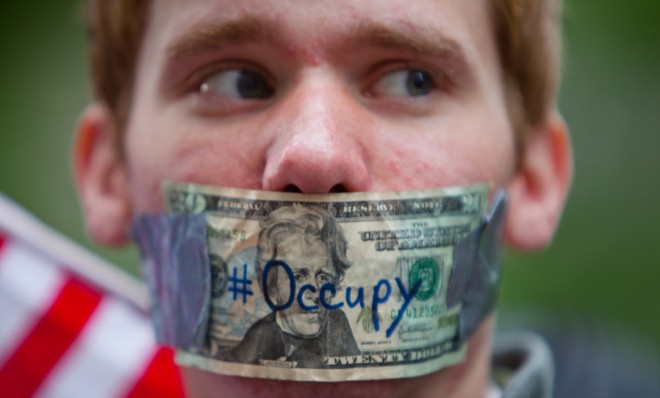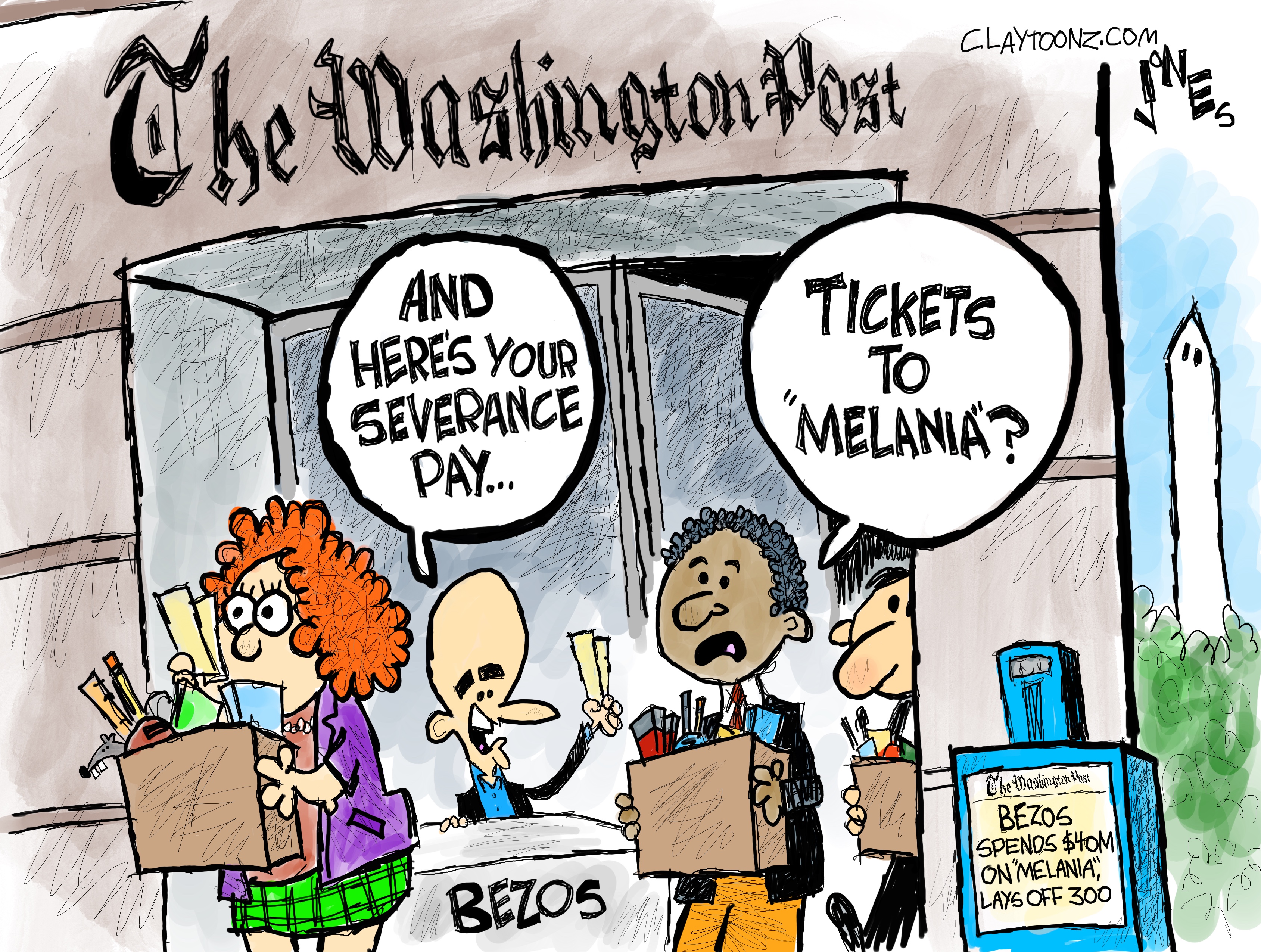Two years later: Did Occupy Wall Street make a difference?
Protesters no longer camp out in Zuccotti Park. Does that mean the movement didn't accomplish anything?

A free daily email with the biggest news stories of the day – and the best features from TheWeek.com
You are now subscribed
Your newsletter sign-up was successful
Today, protesters will gather in New York City's Financial District to mark the second anniversary of the birth of Occupy Wall Street. But with Zuccotti Park cleared of tents and the movement having largely petered out, has anything fundamentally changed over the past two years?
Income inequality certainly has — by growing. Last year, the top 1 percent of Americans took home 19 percent of the country's household income, their biggest share since the Roaring '20s. And any congressional interest in further reforming the financial services industry goes unrealized as the body grapples with how to pass a budget that will keep the government running for another year.
Still, Occupy Wall Street did change how the country talks about the economy, notes Rebecca Solnit in Mother Jones, especially when it comes to "that contagious meme 'the 1 percent.'"
The Week
Escape your echo chamber. Get the facts behind the news, plus analysis from multiple perspectives.

Sign up for The Week's Free Newsletters
From our morning news briefing to a weekly Good News Newsletter, get the best of The Week delivered directly to your inbox.
From our morning news briefing to a weekly Good News Newsletter, get the best of The Week delivered directly to your inbox.
Charles M. Blow, writing in The New York Times, agrees:
The Occupy Wall Street movement, which many dismissed as the wails of the young and disaffected without clear objectives, clear leaders, or a clear political agenda, may, in the end, have a rather clear legacy: Ingraining in the national conscience the idea that our extreme levels of inequality are politically untenable and morally unacceptable, and that eventually the 99 percent will demand better. [New York Times]
Occupy Wall Street might not have upended global capitalism, but it did create easily recognizable talking points. Chanting "we are the 99 percent" is certainly more convenient than sharing a lecture by leftist economist and Occupy Wall Street supporter Joseph Stiglitz.
As for its political impact, it never equaled (or tried to equal) the conservative grassroots movement it was often contrasted with, the Tea Party, by challenging moderate candidates.
That doesn't mean, two years later, that progressive politicians haven't adopted Occupy Wall Street's rhetoric.
A free daily email with the biggest news stories of the day – and the best features from TheWeek.com
Just look at the mayor's race in New York City. Two years ago, Mayor Michael Bloomberg ordered the removal of the protesters from Zuccotti Park. Last week, New Yorkers chose the city's public advocate, Bill de Blasio — who, in 2011, called Occupy a "heartfelt movement that's speaking to what people are feeling all over this country" — as the Democratic candidate for mayor.
Sen. Elizabeth Warren (D-Mass.) openly supported Occupy Wall Street as a candidate in 2011 and 2012, and has since become the Left's champion on economic issues. President Barack Obama regularly talks about the disproportionate gains of "the top 1 percent," as he did in a speech in July at Knox College.
Robert Reich, former secretary of Labor under President Clinton, notes in The Christian Science Monitor that "Occupy put the issue of the nation's savage inequality on the front pages" and "to that extent, it was a stirring success." But he wonders how it will compare to the women's suffrage and labor union movements:
These movements could sustain themselves over many years, sometimes many decades, because they consciously maintained hope on the basis of small but concrete victories, built their numbers by choosing their battles carefully, and kept their eyes on the big prizes. They educated the public about what was at stake, and then used public pressure to push elected representatives.
Occupy served an important purpose, but lacking these essentials it couldn't do more. Inequality is worse now than it was then, and our democracy in as much if not more peril. So what's the next step? [Christian Science Monitor]
Keith Wagstaff is a staff writer at TheWeek.com covering politics and current events. He has previously written for such publications as TIME, Details, VICE, and the Village Voice.
-
 American Psycho: a ‘hypnotic’ adaptation of the Bret Easton Ellis classic
American Psycho: a ‘hypnotic’ adaptation of the Bret Easton Ellis classicThe Week Recommends Rupert Goold’s musical has ‘demonic razzle dazzle’ in spades
-
 Political cartoons for February 6
Political cartoons for February 6Cartoons Friday’s political cartoons include Washington Post layoffs, no surprises, and more
-
 Trump links funding to name on Penn Station
Trump links funding to name on Penn StationSpeed Read Trump “can restart the funding with a snap of his fingers,” a Schumer insider said